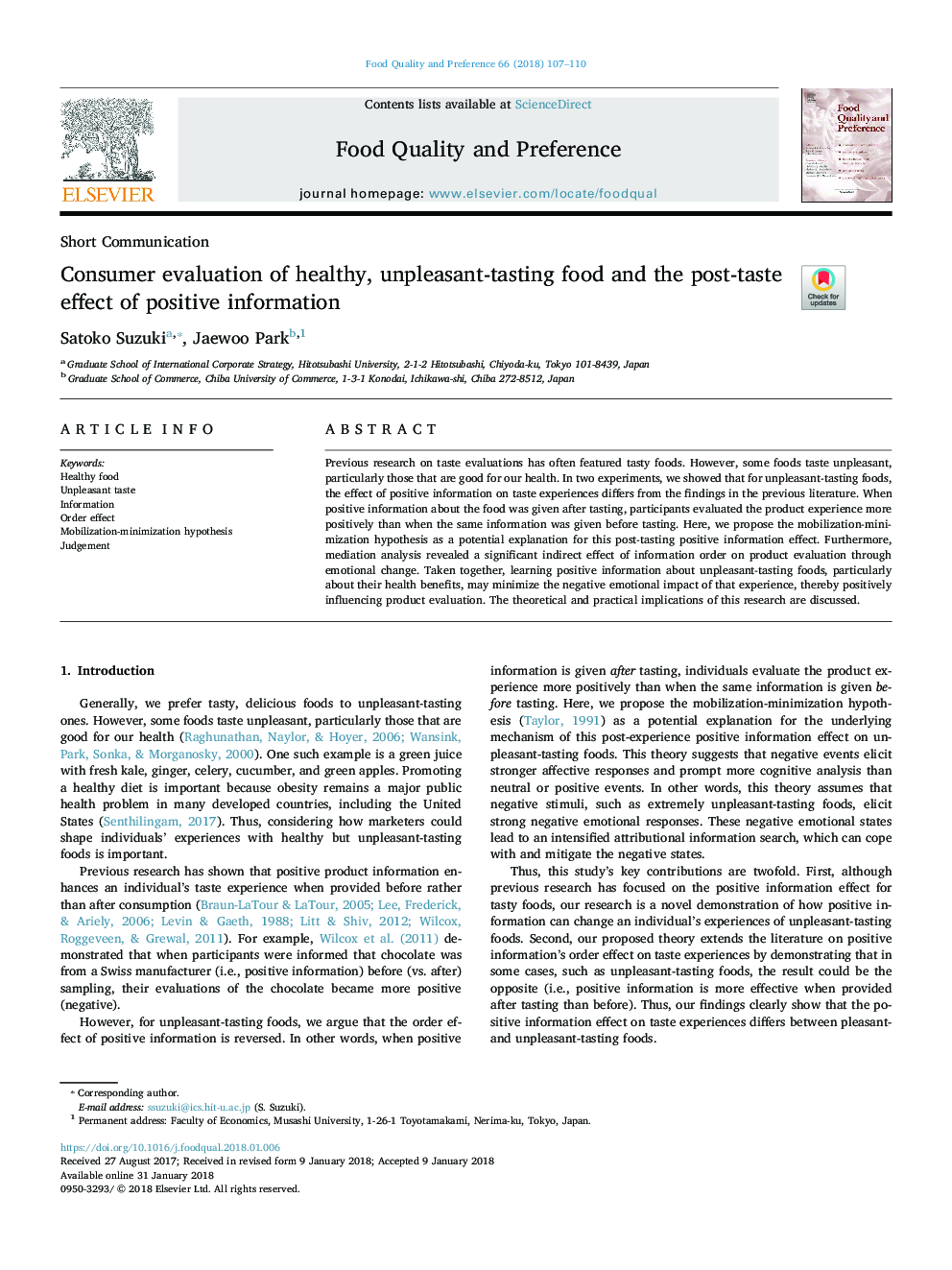| Article ID | Journal | Published Year | Pages | File Type |
|---|---|---|---|---|
| 8838523 | Food Quality and Preference | 2018 | 4 Pages |
Abstract
Previous research on taste evaluations has often featured tasty foods. However, some foods taste unpleasant, particularly those that are good for our health. In two experiments, we showed that for unpleasant-tasting foods, the effect of positive information on taste experiences differs from the findings in the previous literature. When positive information about the food was given after tasting, participants evaluated the product experience more positively than when the same information was given before tasting. Here, we propose the mobilization-minimization hypothesis as a potential explanation for this post-tasting positive information effect. Furthermore, mediation analysis revealed a significant indirect effect of information order on product evaluation through emotional change. Taken together, learning positive information about unpleasant-tasting foods, particularly about their health benefits, may minimize the negative emotional impact of that experience, thereby positively influencing product evaluation. The theoretical and practical implications of this research are discussed.
Related Topics
Life Sciences
Agricultural and Biological Sciences
Food Science
Authors
Satoko Suzuki, Jaewoo Park,
